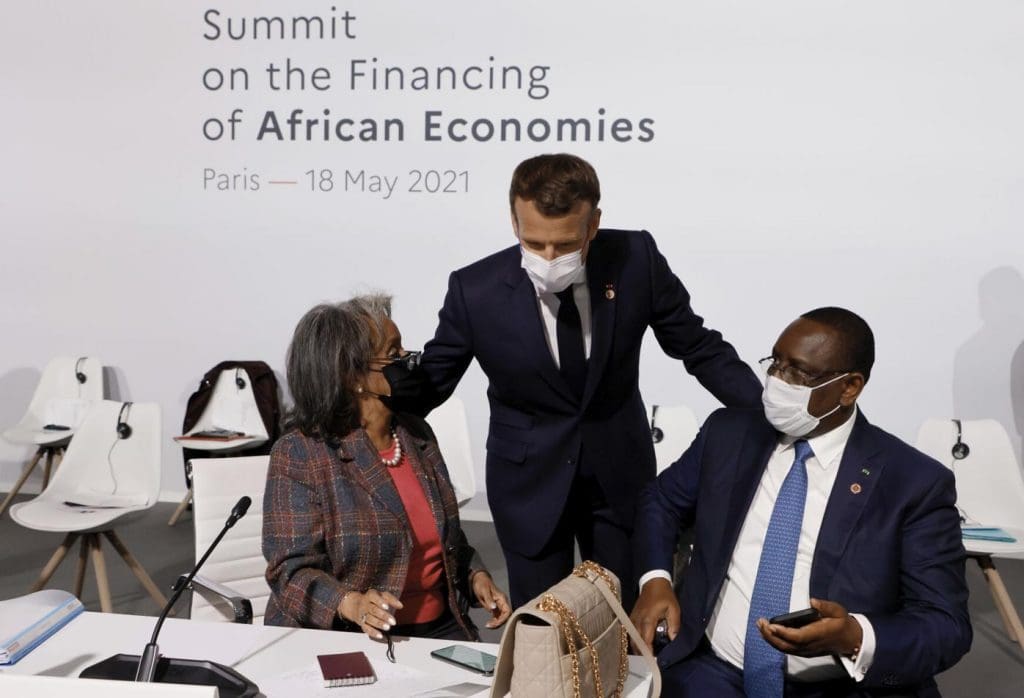As French president Emmanuel Macron on Tuesday afternoon played host to some thirty heads of state and foreign leaders at a summit looking into Africa’s debt, former Jeune Afrique editor-in-chief, Francis Kpatindé, who teaches at the Institute of Political Studies in Paris dissects for APA the stakes for this elite gathering.
By Lemine Ould M Salem
Macron on May 18, 2021 led a new international meeting on African debt. What could be the outcome?
Francis Kpatindé: The objective of the French President by bringing together an array of heads of state and international figures is to find, together, new solutions to the financing crisis in Africa. The intention is commendable, but it will probably take more than half a day to find a brilliant, consensual, sustainable and lasting solution to the problems of debt and development. Even if the initiative is to be welcomed, I am afraid that it will be just another big international rave, especially since – that’s the way it goes – the various actors will be keen to avoid the questions that make people angry: How can such a conference be organised without the African and international private sector, as well as the African pension funds that drive the continent’s economic life and hold a large part of the said debt? Why is this debt, estimated at nearly 2,000 billion dollars, slowly killing the continent’s economy and, beyond that, Africans, especially the youngest? Who benefits from this predatory situation? And how can it be mitigated in the short term, if not ended?
Can the presence of China be seen as a sign of the beginning of rethinking the relations with France’s former colonies that it had often harped on in the past?
Francis Kpatindé: China’s presence at the Paris conference is justified on several grounds. This country, destined to become the world’s leading power, is today Africa’s main trading partner. China accounts for nearly $200 billion of Africa’s global debt. It therefore has a say at the table. This was to be done by the Chinese First vice Prime Minister, Han Zheng, who will be speaking by video conference from Beijing.
The underlying idea of the French president is to bring China on, on this subject as on others, to consult more closely with Europeans and international institutions in its commercial, industrial and financial deals in Africa. It remains to be seen whether China, like African countries, has any interest in such a three-way partnership.
The day before Tuesday’s meeting, the new transitional authorities in Sudan were due to meet with foreign donors. Why the sudden interest in a country that until recently was considered a pariah by the international community?
Francis Kpatindé: Sudan is rising from the ashes after thirty years of authoritarian rule by Omar al-Bashir. The country is struggling to regain its lost glory, when Khartoum was a bustling capital that attracted intellectuals and activists from Africa and the rest of the so-called Third World. France was among the first countries to encourage the Sudanese transition, to plead its cause internationally. That said, let’s not be naive! Paris has found a new opportunity to set foot in a region formerly controlled by the British and thus take a little revenge for its bitter defeat in Fashoda. At the time, this modest area where French and British troops almost fought in 1898 was in Sudan. Today it is in the territory of the Republic of South Sudan. Emmanuel Macron, more than his predecessors, makes no secret of the fact that he has his sights set on such important non-French speaking countries as Nigeria, Kenya, South Africa and Ethiopia.
LOS/lb/as/APA


